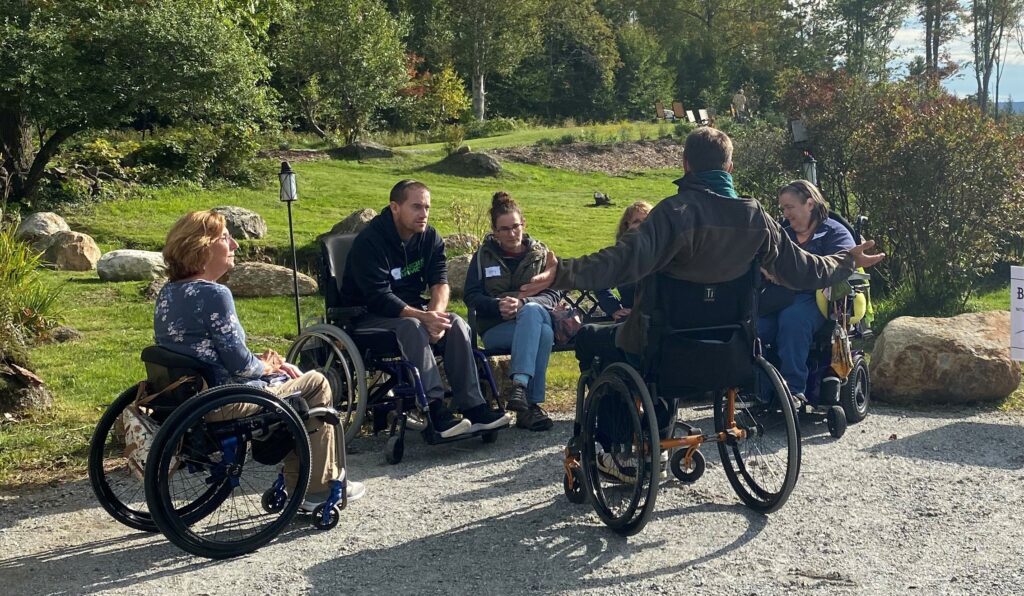
In our fast-paced, always connected world, finding approaches to improve wellbeing is more important than ever. Over the past few years, we have seen a rise in opportunities to calm the noise and find a little inner peace. The breadth of what the Neilsen Foundation supports is vast, not only across the United States and Canada, but through the various organizations we partner with. Each year we support programs that provide a wide variety of creative outlets to enhance the wellness of individuals with spinal cord injury (SCI).
Several of our grantee partners have developed adaptive health and wellness classes, including tai chi, yoga, and aerobics for people with SCI—one offers summer yoga sessions on the banks of Shaver Lake in California. Another created an opportunity to learn photography as “a means of creative expression” and a way to “channel negative emotion into something positive.” Meanwhile, Wellness for Life in South Carolina is taking wellbeing practices virtual by providing a website page aimed at serving the needs of individuals with SCI by exploring topics like sleep, intimacy, and nutrition. Their Breeze Peer-Support Groups also offer monthly presentations and outdoor adventure activities.
Sunset Hill Education Institute (SHEI) in New Hampshire used Neilsen Foundation support to create their Nature’s Way program with a holistic health and wellness coach. That recently completed, two-year project provided wheelchair accessible pathways to nature, giving people with SCI opportunities to connect with themselves—and others. “Individuals have opened up their perception on wellness and mental health,” SHEI founder Carol Conforti-Adams explains. “People in wheelchairs can really widen their perspective and look at nature and how it adapts and changes and grows. We all need to learn to be adaptive and grow.”
Wellness and good mental health are a top priority for people with SCI who are dealing with chronic pain. Researchers are looking at alternative methods of relief to help individuals who cannot find comfort using currently available treatments. Our partner grantees are studying alternatives to drugs as a pathway to better pain management. One recently completed research project tested a community-based program that used meditation, paced breathing, and relaxation training to reduce anxiety and its effects on chronic pain. Other approaches being studied include hypnosis-enhanced cognitive therapy during inpatient rehabilitation and mind-body interventions, such as guided imagery, to reduce acute and chronic pain.
Everyone deserves to feel good, be at peace, be able to participate fully in life, and have access to activities that nourish the soul. Many of our grantee partners are dedicated to increasing the wellbeing of people with SCI. A little quiet time with yourself or with groups of like-minded people can have huge benefits.